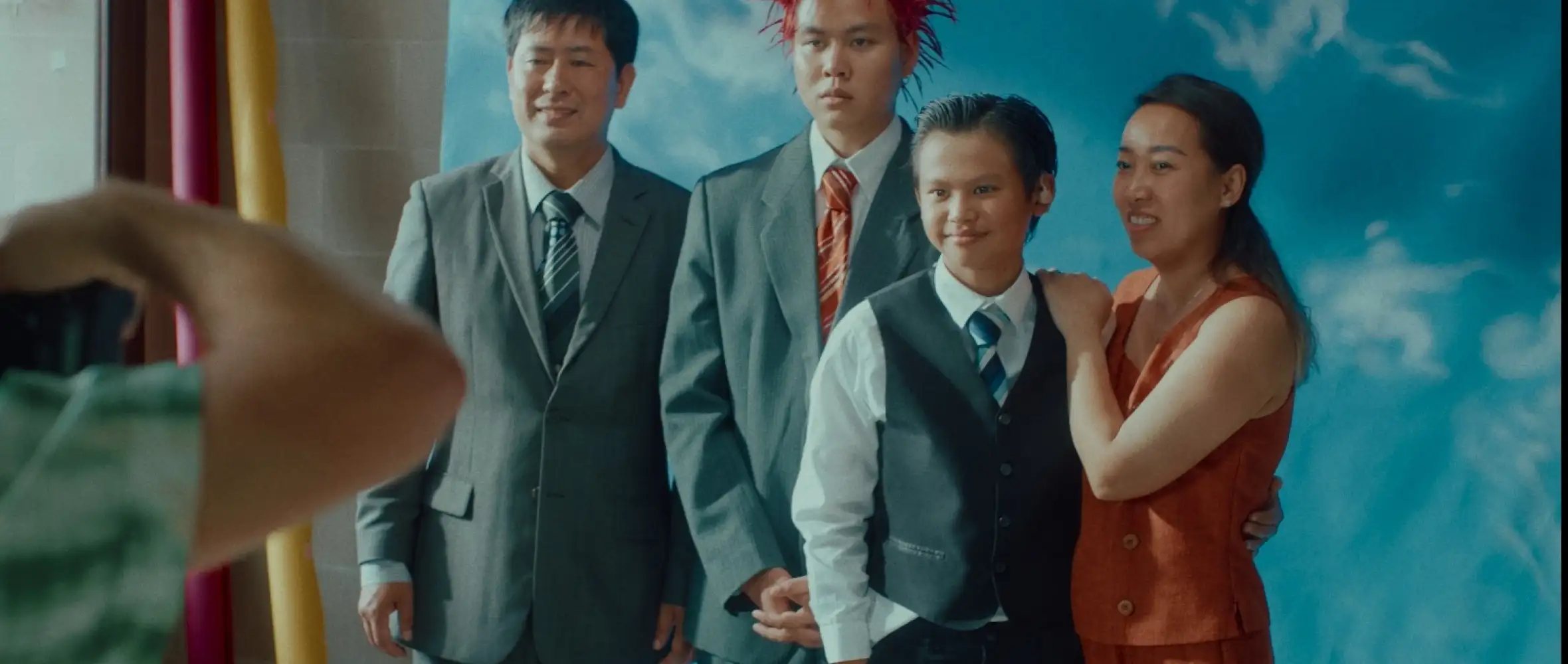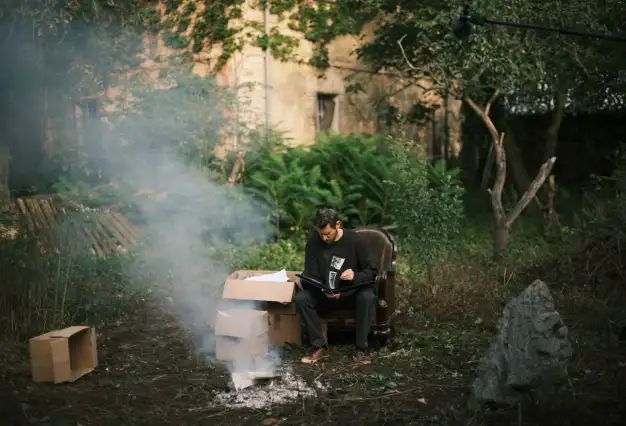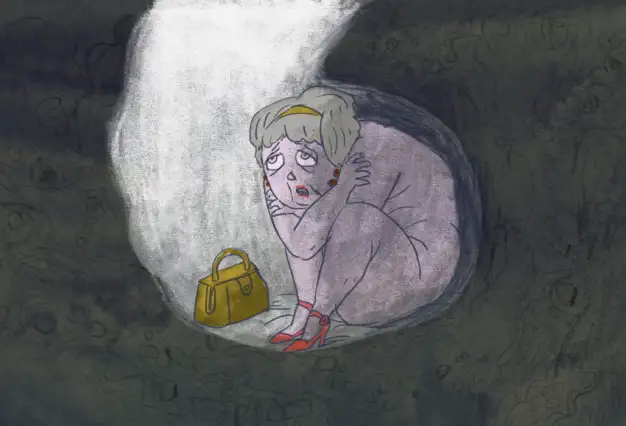
12 January 2025
Generational divides and unspoken truths about the Vietnamese diaspora
Generational divides and unspoken truths about the Vietnamese diaspora

Amid the rise of European cinema exploring migration and cultural identity, emerging writer-director Dužan Duong draws on personal experience for his depiction of the Vietnamese diaspora in the Czech Republic in Summer School, 2001, his feature-length autofiction debut. Through a transgenerational lens, the film examines the intersection of tradition and modernity, exploring identity, family, and the challenges faced by immigrant communities. As the first Czech-Vietnamese film, Duong’s project is a major milestone in Czech cinema.
by Martin Kudláč for CZECH FILM / Spring 2025
One of the most anticipated debuts from the rising generation of Czech filmmakers is Dužan Duong’s Summer School, 2001. Born in Hanoi and raised in the Czech Republic, Duong, along with award-winning director and animator Diana Cam Van Nguyen, is part of a small group of creatives representing and uplifting authentic Vietnamese-Czech voices. Though he made his first film before being admitted to FAMU, he dropped out of film school after one semester. As a director and cameraman making commercials with his Prague-based production company AZN kru, while continuing to work on his own projects, he straddles two cultures in his professional career.
As an auteur, he focuses on themes of identity, cultural displacement, and the experiences of the Vietnamese diaspora in the Czech Republic. He first garnered attention in 2014 with his documentary short Mat Goc (2014), which premiered in the competition section Czech Joy at the Ji.hlava International Documentary Film Festival. The film addressed the inner conflicts of the so-called banana children generation—Vietnamese raised in the Czech Republic who feel culturally “yellow on the outside, white on the inside.”
In 2017, Duong transitioned to fiction filmmaking with Bo Hai (2017), a short film blending fiction with personal experience. The film featured members of Duong’s own family alongside professional actors to explore generational and cultural tensions within the Vietnamese-Czech community. Bo Hai premiered at the Ji.hlava IDFF, and won awards for Best Direction at FAMUfest and Best Short Film at the Finale Plzen and Cottbus film festivals. It also earned a Czech Lion Award nomination for Best Student Film.
Duong’s feature-length debut, Summer School, 2001, continues his exploration of the Vietnamese-Czech experience. The film draws on his own upbringing near a bustling marketplace in western Bohemia, using the lens of a young boy’s perspective to examine intergenerational dynamics, cultural expectations, and the challenges of assimilation for one of the country’s largest minorities.
Three generations, one family
Duong coauthored the script for Summer School, 2001 with Jan Smutný, one of the cowriters behind the award-winning short film Peacock (2015) by Ondřej Hudeček, along with producer Lukáš Kokeš. While in previous works, Duong referred to his approach as docufiction, his feature-length debut veers more into autobiographical territory; the director calls it autofiction. In fact Summer School, 2001 combines different genres, ranging from family drama to coming-of-age comedy to coming-out drama.
The story unfolds in three parts, exploring the lives of a Vietnamese-Czech family grappling with cultural displacement, generational tensions, and social exclusion. Set at the turn of the millennium near the Czech-German border, the film employs a Rashomon-like structure, weaving together the perspectives of three family members—Zung, Tai, and Kien—to portray the intersecting struggles in a tight-knit immigrant community across three generations.
Zung is a middle-age father to 17-year old Kien and 10-year old Tai. After losing his family’s merchandise in a raid, Zung becomes indebted to his cousin, Phong, and is forced into morally compromising work that alienates him from his community. Meanwhile, his strained relationships with his wife, Lan, and two sons push him further into isolation.
The second part shifts to Tai’s perspective. A hyperactive yet academically gifted 10-year-old, Tai begins to feel neglected after the arrival of his older brother, Kien, who came to the Czech Republic after spending 10 years living with his grandma in Vietnam. The impact of his brother’s return and the fractures within the family are seen through Tai’s eyes.
The final part of the film centres on Kien, who struggles to reintegrate into his family and community in the new country. Kien’s sense of alienation is compounded by unresolved trauma within the family and his complicated relationship with Viktor, a mentor in the summer school that both boys attend in order for Tai to have a better chance at a good high school and Kien to better assimilate to his new home. Tying the three perspectives together is Lan, the mother, whose quiet resilience and eventual intervention act as a unifying force.
Bridging cultures, splitting generations
The triadic narrative structure of the film enables Duong to highlight generational differences within the Vietnamese community. Zung represents traditional values and the sacrifices made by the first generation of immigrants; Kien embodies the struggles of integration and self-discovery; and Tai, having grown up in the Czech Republic, symbolizes the new generation, straddling two cultures.
Kien’s arrival disrupts the family’s fragile equilibrium. He faces the challenge of reconnecting with parents he barely knows, understanding a younger sibling who is essentially a stranger, and navigating a society that views him through the lens of stereotypes. Alongside the theme of exclusion—not just from the broader Czech society but also within the Vietnamese community itself—the film also tackles topics that are often considered taboo, such as queer identity.
Duong’s commitment to authenticity extends to his cast, which features a mix of nonprofessional Vietnamese actors, many of them stepping in front of the camera for the first time, and professional Czech actors. Valeria Borkovcova of AZN casting was in charge of hiring for the Vietnamese nonprofessionals, who she found through a combination of street and online casting. Many of them drew from personal experience to inform their performances. The director often works with a method he calls “controlled improvisation,” encouraging actors on set to react naturally in the given situations following the script loosely. This has spurred producer Kokeš to describe the film as “a participatory project.”
Shattering cultural stereotypes
One of the film’s objectives is to dismantle Czech stereotypes about the Vietnamese community. As Duong has noted, portrayals of Vietnamese people in the Czech Republic are often either exoticized or limited to simplistic images of shopkeepers. Summer School, 2001 seeks to present a multifaceted depiction, highlighting the individuality of its characters and the diversity within the community. For Czech and international audiences alike, the film offers a glimpse into the lives of their Vietnamese neighbors, as Vietnamese communities are present in other countries besides the Czech Republic. Simultaneously, the film holds up a mirror to the Vietnamese community, encouraging introspection and dialogue on matters that are frequently left unspoken.
Summer School, 2001 was shot by cinematographer Adam Mach, who frequently works with the director Michal Blaško and served as the DoP on his critically acclaimed debut Victim (2022), the miniseries Suspicion (2022), and Duong’s Bo Hai. Mach emphasizes natural light and its interplay with shadow to create an authentic and understated visual style, using a handheld camera for dynamic action. In line with this approach, the production relies on minimalist lighting equipment, including large mirrors, reflective surfaces, and energy-efficient LED sources. Summer School, 2001 was shot in a 3:2 ratio, commonly used in still photography, and producer Lukáš Kokeš notes that the film has an “Asian visual vibe,” evoking the early works of Wong Kar-wai.
Digital VFX and CGI are employed selectively to enhance the visual storytelling without overwhelming the film’s grounded period aesthetic. Duong’s creative team included editors Jakub Jelínek (BANGER.) and Jakub Podmanický (Mr. and Mrs. Stodola), composer Jonatán Pjoni Pastirčák (Our Lovely Pig Slaughter), costume designers and makeup artists Veronika Varcholová and Denisa Bontempo, set designer Marek František Špitálsky (Electra), and sound engineers Petr Kolev (Intensive Life Unit) and Adam Bláha (Somewhere Over the Chemtrails, Bo Hai).
Crossing borders
The principal photography on Summer School, 2001 unfolded in the Czech Republic over summer 2023, with the last phase of shooting taking place in December 2023 in Vietnam. The final touches are currently being done in postproduction. They will be followed by the sound mix and color grading, so the film will be fully ready in February 2025.
Lukáš Kokeš of the Czech outfit nutprodukce is producing the project alongside Duong’s AZN kru and Jakub Viktorín of the Slovak company nutprodukcia, with Czech Television as coproducers. They expect a world premiere on the international festival circuit in summer 2025, to be followed by domestic theatrical release and the traditional cycle of TV broadcasts while producers work out deals with global streamers.
Currently the producers are in discussions with international sales agents. Given that large parts of the film’s dialogue are in Vietnamese and that Vietnamese people are one of the biggest migrant communities in so many countries, they see a high international market potential for Summer School, 2001.




